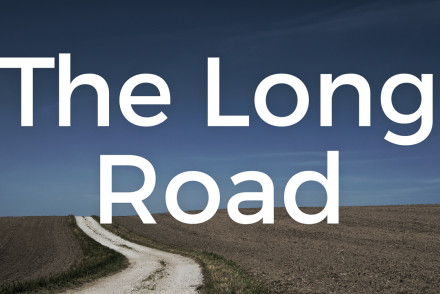My default thought on faith has always been that if I reallllly had faith then I wouldn’t feel anxious, worried, or nervous. If I had faith that God was going to heal the person I felt like I was supposed to pray for at the grocery store, I wouldn’t feel nervous about doing it. If I really had faith that God would provide for all our family’s financial needs I wouldn’t worry about where the extra money we need would come from.
That image of faith is reinforced by plenty of biblical scenes; Elijah boldly mocking the prophets of Baal, Joshua powerfully conquering the promised land, teenage David stepping out to face Goliath with a stone and sling, Paul eager to speak to a ferociously angry crowd and share the Gospel, and many more. A surface-level reading of those texts seems to say that the proof of whether or not we have faith is found in our feelings. The person of real faith is the one who is confident, bold, and fully assured, stepping into danger without a backward glance.
Two problems with faith as a feeling
There are two problems with viewing faith as a feeling. First, the biblical narrative is extremely sparse when it comes to giving us insight into the character’s emotions during their great acts of faith. Simply because the bare-bones biblical narrative makes the person seem confident and bold doesn’t necessarily mean they felt that way internally in the moment. To say so would be going beyond the text.
Elijah flees in anger and despair almost immediately after his victory over the prophets of Baal. Joshua needs several reminders to “be strong and courageous” before moving into the promised land. David’s Psalms give us a picture of someone regularly torn by doubt, fear, and anxiety. Jesus himself, the very founder and foundation of our faith, clearly wasn’t feeling particularly bold or powerful when he wept and pled for a different path in Gethsemane. Are they less people of faith because they had moments where they didn’t “feel it”?
The second problem is that measuring faith by feeling undermines the very reality of faith. Biblical faith isn’t bravado. It isn’t something that can be hyped up or driven by adrenaline. Hebrews 11:1 states that, “faith is the assurance of things hoped for, the conviction of things not seen.” Assurance and conviction are not primarily emotions. Oh, they certainly affect the emotions, but they are not emotions in and of themselves. Instead they are settled resolves, steady and independent of feelings.
Two pictures of biblical faith
The better picture of true faith is one that’s already been mentioned – Jesus in the garden of Gethsemane. Jesus certainly wasn’t feeling the positive emotions of confidence or boldness that we often assume faith inspires, yet he moves forward anyway. His faith in his Father’s goodness inspires him both to plead for a different path and yet move forward towards his own agonizing death. Despite the fact that he wasn’t feeling it, Jesus had the assurance and conviction that his death wasn’t the end of the story.
On a perhaps more relatable level, the man who brought his son to be healed and cries out to Jesus, “I believe – help my unbelief!” is a beautiful picture of biblical faith. Though he didn’t feel confident that his son would be healed, he came to Jesus anyway. Though the disciples failed to heal him, the man stayed until Jesus returned and asked again for healing. That is faith in action, and faith in action is the only actual kind of faith.
These two scenes, and many others in God’s word, point to the true measure of faith.
Faith is action
Want to evaluate whether or not you have faith? Look at your actions. The Apostle James put it this way, “For as the body apart from the spirit is dead, so also faith apart from works is dead.” (James 2:26) If faith is present – if you have the assurance and the hope of God’s promise – then you will act accordingly, regardless of the circumstances. You may act tentatively, fearfully, and with much wavering, but you will act.
If you have faith that God’s Word is powerful and necessary for your spiritual life, you will act accordingly and make time and space to read and meditate on it, even when you don’t feel like it. If you have faith that the Gospel is the “power of God unto salvation,” you will share it. If you have faith that God loves even the people who are absolute jerks to you, you will act lovingly toward them even if you’re not totally feeling the warm fuzzies often associated with love.
Start asking yourself – am I acting in light of what God has said to me? It doesn’t matter whether you’re doing it scared. It matters whether your doing it.
For me that’s a huge weight off my shoulders. I can be a person of faith without needing to constantly feel confident, bold, and courageous. I can act in faith and have part of me be anxious about what the outcome is going to be. Hopefully it’s the same for you.





No Comments